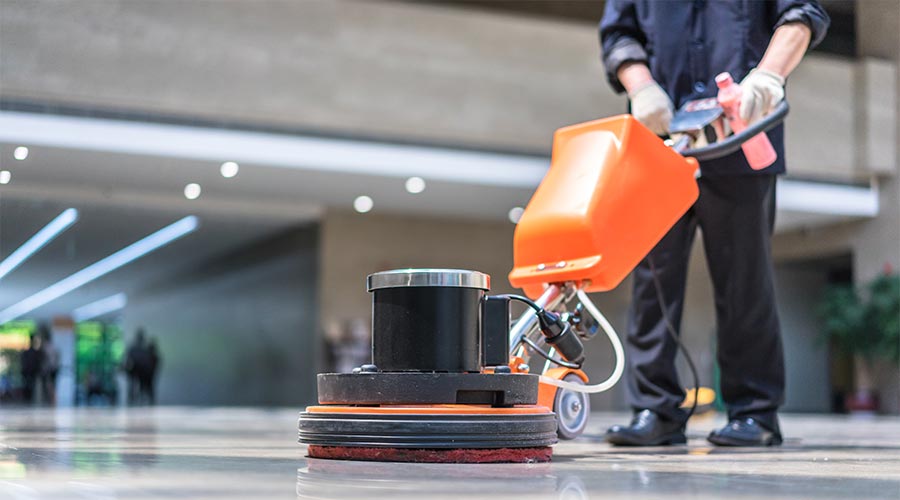
One of the most attractive benefits of lithium-ion batteries is the fact that they are maintenance-free, unlike flooded lead-acid batteries that require the regular addition of water to the cells.
“In a perfect world, flooded lead-acid batteries are the way to go, because as long as you maintain them, you get four to five years out of them,” notes Rothstein. “But people often treat them poorly and destroy them. If your workers maintain lead-acid batteries well, then keep them. But if they don’t, then lithium is better.”
Like Rothstein, Kowalski attributes most of the problems with flooded lead-acid batteries to poor maintenance.
“Lead-acid batteries should last about three years when well maintained,” he says. “Often, because of staff turnover and other reasons, they’re poorly maintained, and they’re being replaced every year.”
When this happens, Kowalski strongly recommends switching to lithium-ion batteries.
Maintenance-free batteries also pose less risk to the end user. In fact, battery manufacturers insist that lithium-ion batteries are safe, despite their bad rap in the electric vehicle market. Under normal charging conditions, these batteries do not off-gas like their flooded lead-acid counterparts, so there is no danger of corrosivity. As one battery vendor explained, sometimes acid is expelled from a flooded lead-acid battery during off-gassing. Because it is corrosive, maintenance workers must ensure that the outside of the battery is clean and the acid does not come into contact with the battery terminals.
“One of the big drawbacks with lead-acid batteries is the potential for sulfuric acid leakage, which damages surfaces,” notes Kowalski. “Lithium-ion is non-spillable: There’s no sulfuric acid that can damage skin, eyes or surfaces. It doesn’t give off hydrogen sulfide gas when it’s charged, so it’s beneficial for all types of facilities.”
Adopting lithium-ion batteries can eliminate the time and labor associated with battery maintenance tasks, as well as increase efficiency by literally lightening the custodians’ workload. In fact, lithium-ion batteries are said to be as much as 50 percent lighter than lead-acid batteries, making it easier for users to bear the weight of a backpack vacuum or maneuver a small floor machine.
Lithium’s Limitations
According to industry experts, lithium-ion batteries are suitable for most facilities and cleaning applications. However, lead acid batteries may still be preferable in some situations.
If the temperature dips below freezing, for example, lithium-ion batteries will not accept a charge. For this reason, facilities that store equipment in an outdoor shed may want to explore other battery options or ensure that their lithium-ion battery is equipped with a heating pad, which automatically heats the cells so that they accept a charge.
Older machines that are one to two years away from retirement are poor candidates for lithium-ion battery upgrades because the battery will likely outlast the equipment.
On the other hand, lithium-ion batteries are a good choice when purchasing new machines. Not only do they have the potential to last up to 10 years, but they align with the industry’s growing focus on sustainability — at least during the product’s lifecycle. One lithium battery can replace and outlast four lead-acid batteries, thereby reducing the environmental impacts of battery production as well as the number of batteries destined for the landfill.
Unfortunately, when it comes to recycling batteries, lithium-ion continues to fall short. Most batteries end up in the landfill whereas the lead in lead-acid batteries is recyclable. In fact, according to one manufacturer, 99 percent of the company’s lead is recycled and made into new batteries. In contrast, lithium-ion batteries require the mining of cobalt, which is not only damaging to the environment but is also linked to human rights violations. Government agencies continue to work on solutions to recycle lithium, but efforts are still in their infancy and track records are poor.
Despite these concerns, lithium-ion batteries are fast becoming a viable alternative to lead-acid batteries, and many would argue that the pros outweigh the cons. Fortunately distributors can help facility professionals navigate the complexities of lithium-ion technology as well as its financial and environmental impacts to determine if it’s the right fit for their cleaning needs.
Kassandra Kania is a freelance writer based in Charlotte, North Carolina, and is a frequent contributor to Facility Cleaning Decisions.
Why Lithium-Ion Batteries are Making Waves in Cleaning

 Celebrating BSCAI's 60th Anniversary eBook
Celebrating BSCAI's 60th Anniversary eBook The Down and Dirty on Cleaning in Virus Season
The Down and Dirty on Cleaning in Virus Season How Surfactant Use is Expanding in Commercial Cleaning
How Surfactant Use is Expanding in Commercial Cleaning